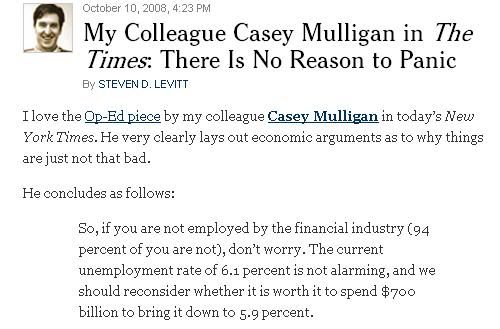Andrew Gelman has a
new post pointing out a contradiction that keeps popping up in the pop econ world. You should read the whole piece (as well as Joseph's
take on it) but this part in particular caught my eye:
The key, I believe, is that "rationality" is a good thing. We all like to associate with good things, right? Argument 1 has a populist feel (people are rational!) and argument 2 has an elitist feel (economists are special!). But both are ways of associating oneself with rationality. It's almost like the important thing is to be in the same room with rationality; it hardly matters whether you yourself are the exemplar of rationality, or whether you're celebrating the rationality of others.
This is an excellent point but I'd go further. The economist's 'rationality' is,
as mentioned before, analogous to the statistician's 'significance.' Both are highly specific terms that are just close enough to their general usage to get people into trouble.
I previously gave some
silly examples of 'irrational' decision making, here's a more practical one: you're an engineer designing a missile. You're concerned with accuracy, range, speed, payload and cost. The 'rational' approach would go something like this -- for each attribute, come up with a function that assigns its level a dollar value, then pick design x where a(x) + r(x) +s(x) + p(x) - cost(x) is optimized. I suspect that most engineers would find this 'rational' approach highly irrational and would usually choose, instead, to hold three or four of these attributes to an acceptable threshold and optimize the remaining one or two. (check out the cheap beer post for more on thresholds and irrationality.)
There's nothing wrong with having a specialized, field specific definition for rationality; there is something wrong with using confusion over different meanings of the term to make yourself look good.


